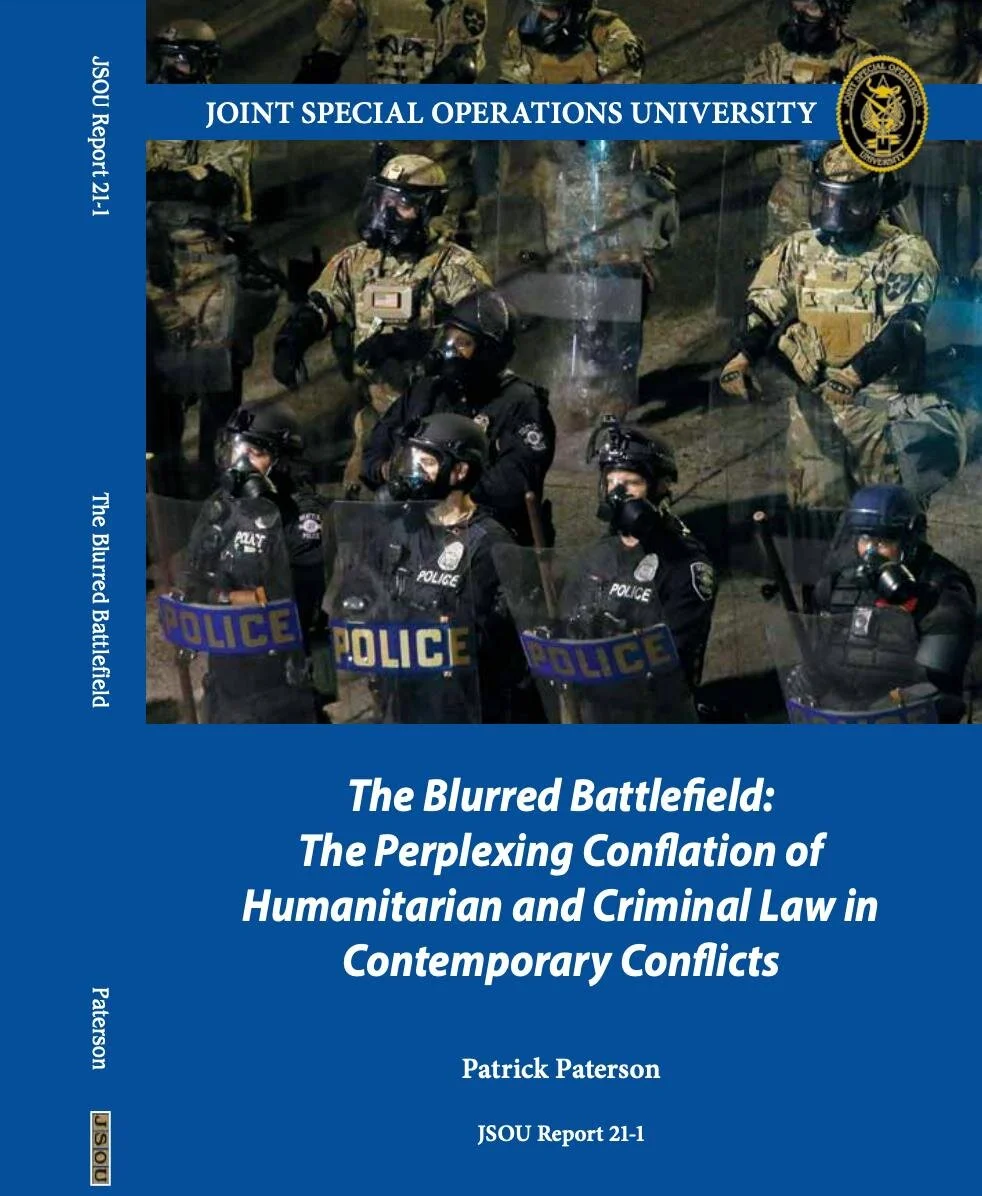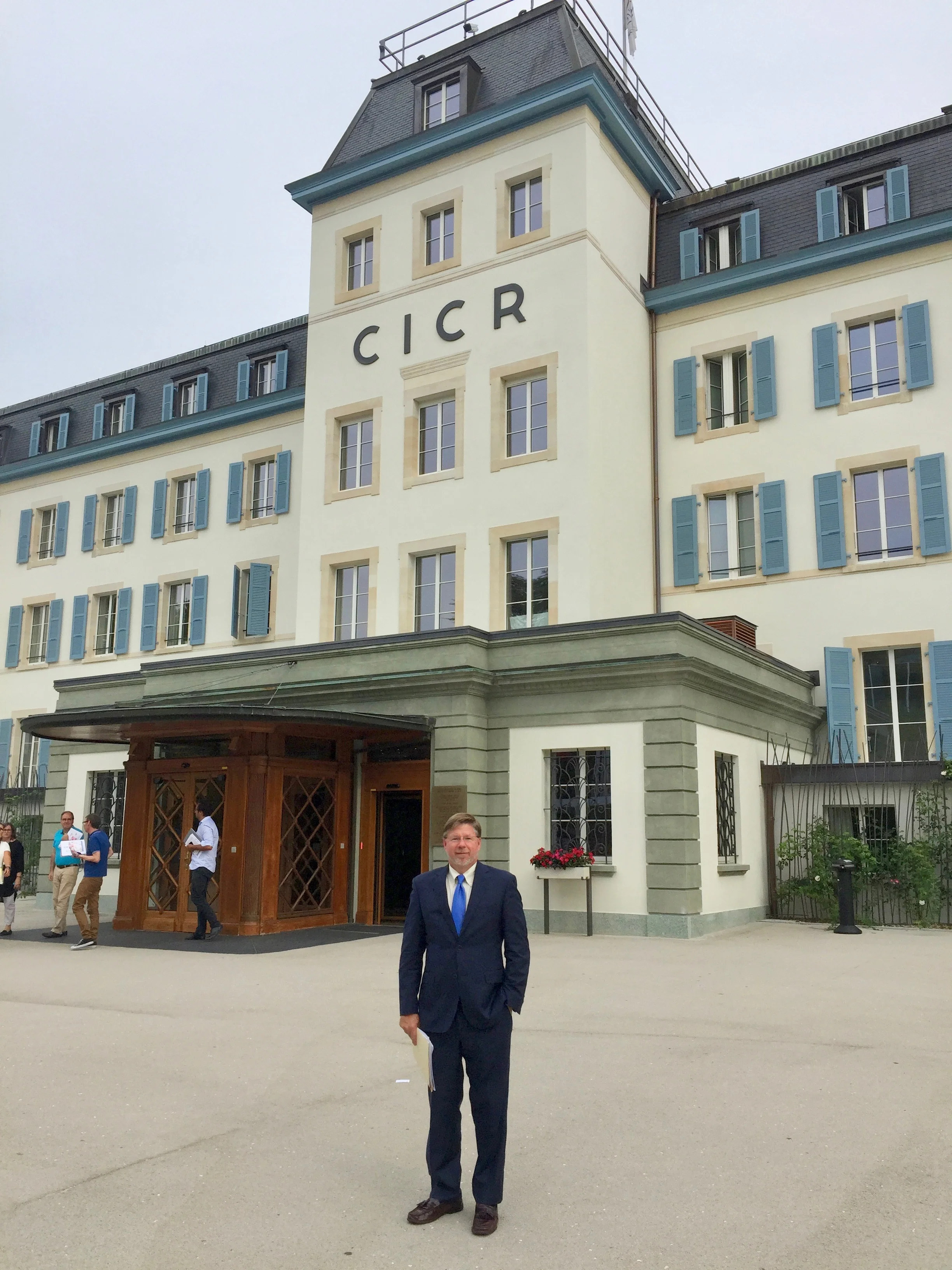I am excited to be in Geneva today with my hosts from the International Committee of the Red Cross. I'll be participating in a working group about international humanitarian law (IHL) in the context of contemporary warfare. Today, approximately 80% of countries in the world are not in the midst of an armed conflict but are, instead, fighting criminal or organized crime activity where the Law of Armed Conflict and IHL do not apply; civilians are suffering as a result. I look forward to sharing my recent research on this grey area and finding ways to move human rights initiatives forward.
Here is how the ICRC presents the problem:
Highly complex battlefields are a common feature of contemporary armed conflicts. As parties to armed conflict rarely fight alone anymore, there is a multiplication of state and non-state actors implicated directly and indirectly in these battlefields. The relationships between these actors take numerous forms, as does the support that these actors provide to one another. Although not a new model, working “by, with, and through” (local) partners is increasingly seen by senior political authorities and military officials as the main blueprint for ongoing and future military operations.
The complexities of the battlefield also coincide with an ongoing disregard for humanitarian principles and increasing suffering and unmet humanitarian needs. Many battlefields see frequent violations of International Humanitarian Law (IHL). State and non-state actors are often dismissive of the very applicability of IHL to the fight in which they are engaged. Additionally, there is a trend amongst those actors that support parties to an armed conflict (“supporting actors”) to seek to mitigate their own exposure to legal, political and economic risks to the maximum extent possible, and to refuse to accept responsibility for the actions of those they support. There is therefore a worrying phenomenon of diffusion of responsibility.
It’s heartening that organizations are starting to take steps to address this very big gap – lives will be saved, as a result.

